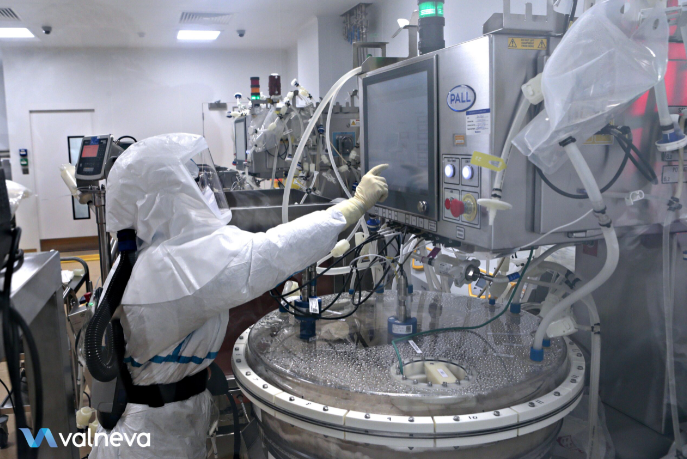
US FDA Approves World’s First Chikungunya Vaccine
WASHINGTON, DC (IANS) – The US Food and Drug Administration (FDA) has approved the world’s first chikungunya vaccine, an affliction that is common in India.
The vaccine Ixchiq, developed by French biotech company Valneva, is approved for individuals 18 years of age and older, who are at increased risk of exposure to chikungunya virus.
Ixchiq is administered as a single dose by injection into the muscle. It contains a live, weakened version of the chikungunya virus and may cause symptoms in the vaccine recipient similar to those experienced by people who have chikungunya disease.
The chikungunya virus is primarily transmitted to people through the bite of an infected mosquito.
Chikungunya is an emerging global health threat with at least five million cases of chikungunya virus infection reported during the past 15 years.
“Infection with chikungunya virus can lead to severe disease and prolonged health problems, particularly for older adults and individuals with underlying medical conditions,” said Peter Marks, director of the FDA’s Center for Biologics Evaluation and Research, in a statement.
“Today’s approval addresses an unmet medical need and is an important advancement in the prevention of a potentially debilitating disease with limited treatment options,” he added.

The safety of Ixchiq was evaluated in two clinical studies conducted in North America in which about 3,500 participants 18 years of age and older received a dose of the vaccine with one study including about 1,000 participants who received a placebo.
The most commonly reported side effects by vaccine recipients were headache, fatigue, muscle pain, joint pain, fever, nausea and tenderness at the injection site.
In addition, although not commonly reported, 1.6 per cent of Ixchiq recipients developed severe chikungunya-like adverse reactions that prevented daily activity and/or required medical intervention. Two recipients were also hospitalised.
In some recipients, the adverse reactions prolonged, lasting for at least 30 days. The vaccine includes caution labels warning users about severe or prolonged adverse reactions.
The FDA has also asked the company to conduct a post-marketing study to assess the serious risk of severe chikungunya-like adverse reactions following administration of Ixchiq.
The highest risk of chikungunya infection is in tropical and subtropical regions of Africa, Southeast Asia, and parts of the Americas where chikungunya virus-carrying mosquitoes are endemic. However, chikungunya virus has spread to new geographical areas causing a rise in global prevalence of the disease.
The most common symptoms of chikungunya include fever and joint pain. Other symptoms may include a rash, headache, and muscle pain.
Some individuals may experience debilitating joint pain that persists for months or even years. Treatment includes rest, fluids, and over-the-counter medications for pain and fever.
The FDA also said that chikungunya virus is also severe and potentially fatal to newborn babies from pregnant individuals at delivery. Doctors recommend those infected to rest, drink fluids, and take over-the-counter medicine to treat pain and fever.




